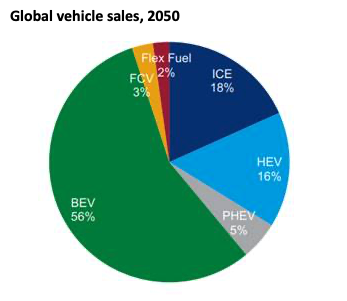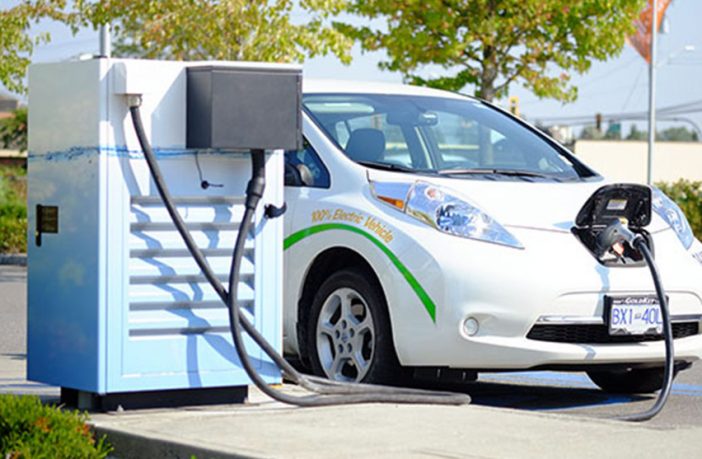- Battery electric vehicles (BEVs) will be the accounting for 56% of all vehicle sales that year, according to new research from Wood Mackenzie.
According to Wood Mackenzie’s report, 2050 will see 875 million electric passenger vehicles, 70 million electric commercial vehicles, and 5 million fuel cell vehicles on the roads. This brings the grand total of zero-emissions vehicles in operation to 950 million by mid-decade.
Wood Mackenzie’s research reveals that more than three out of every five vehicles on the roads will be electric vehicles in China, Europe and the US by 2050. Almost one in two commercial vehicles will be electric by the same date in those regions.

Source: Wood Mackenzie Energy Transition Service
Ram Chandrasekaran, Wood Mackenzie Head of Road Transport, said: “Net-zero is the new mantra and road transport is one of the low-hanging fruits. A growing list of countries and automakers are committing to carbon neutral targets and this has completely transformed the global road transport landscape.
“In Q1 2021 alone, electric vehicle sales rocketed to almost 550,000, which represents a 66% increase over the same period last year. The re-emergence of the US as a climate leader and China’s net-zero target are key to this surge.”
The projected growth in electric vehicle sales spells bad news for internal combustion engine (ICE) vehicles. Wood Mackenzie says that sales of ICE vehicles, including micro/mild hybrids, will fall to under 20% of all global sales by 2050. Almost half of the remaining ICE stock will reside in Africa, the Middle East, Latin America and Russa and Caspian regions, despite those regions possessing only a combined 18% of global vehicle stock that year.
Mirroring the growth of electric vehicles, the number of charging outlets is projected to swell to 550million globally by the middle of the decade. An overwhelming majority (90%) of these outlets will continue to be residential chargers. Policy support including subsidies and regulations will ensure that the electric vehicle charging market grows in line with vehicles themselves.
Author: Bryan Groenendaal
Source: Woodmac















